
The Charlie-1 is a fictional 1950’s American VTOL observational craft. The 1940s and ’50s saw a great deal of pioneering in the world of vertical flight. With the growth in applications for such vehicles, efficiency became a boasting point for many aircraft. Compared to the helicopter, the cyclogyro puts out a much higher lift-to-power ratio as the entire paddle (or blade) produces lift.
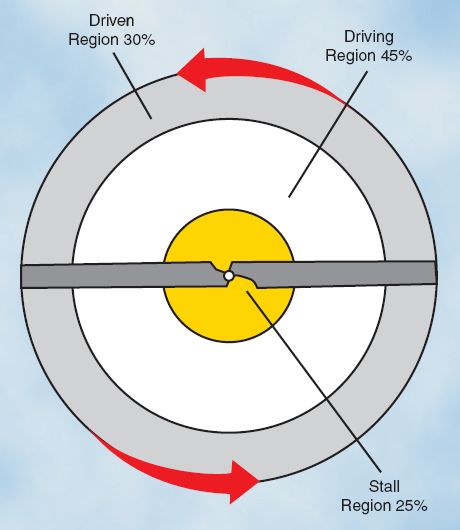
The above diagram shows the lifting areas of a helicopter rotor disk in autorotation; however as helicopters ideally autorotate at the same rpm as in forward flight, we can assume that roughly 25% of the rotor disk produces no lift at all and flies in a constant stall producing unnecessary drag and increasing the power required for flight. The cyclogyro configuration, on the other hand, doesn’t have this problem as all parts of the paddle (or blades) are equidistant from the centrifuge.
Downwash produced by the cyclogyro is greater than that of a single-rotor helicopter of equal size due to the downwash of the upper paddle accelerating the air going through the lower paddle; this makes the craft less susceptible to vortex ring state, a condition that causes a helicopter to uncontrollably drop when in a high rate of descent. These performance advantages made the Charlie-1 an ideal aircraft for the US Airforce & Navy.

Throttle = Throttle
VTOL = Collective
Trim = Forward thrust (makes it fly kind of like a plane)
Pitch & Roll = Pitch & Roll
Yaw = Yaw
AG1 = Instrument lights.

Old and dangerous-looking helicopters got me excited about designing something similar looking. The cyclogyro is an early flight design that isn’t well known, and it made me wonder what things would have looked like if they became the helicopter instead. As you can see, the two mix well because this looks like an awesome flying death trap. Enjoy these photos I drew visual inspiration from.




The text above was generated using Fontmeme.com
[Disclaimer] - This uses vtol jets in the blades to fly
Find the version that actually flies using wings here, but it doesn't fly great.
And
I also included funky trees inputs for stability in order to make it easier to fly for some; if you feel you don’t need it, try the fun version.
Specifications
Spotlights
- SemedianIndustries 5.0 years ago
- FlyingThings 5.0 years ago
- MAHADI 5.0 years ago
- Mumpsy 5.0 years ago
- RussianAce 5.0 years ago
- Type2volkswagen 5.0 years ago
- BuiltBionixInd10 5.0 years ago
General Characteristics
- Predecessor Charlie-1 IOS-Windows Transfer
- Created On Windows
- Wingspan 55.8ft (17.0m)
- Length 42.3ft (12.9m)
- Height 17.7ft (5.4m)
- Empty Weight 3,227lbs (1,463kg)
- Loaded Weight 11,383lbs (5,163kg)
Performance
- Power/Weight Ratio 19743.182
- Wing Loading 21.6lbs/ft2 (105.4kg/m2)
- Wing Area 527.4ft2 (49.0m2)
- Drag Points 7467
Parts
- Number of Parts 395
- Control Surfaces 0
- Performance Cost 2,385

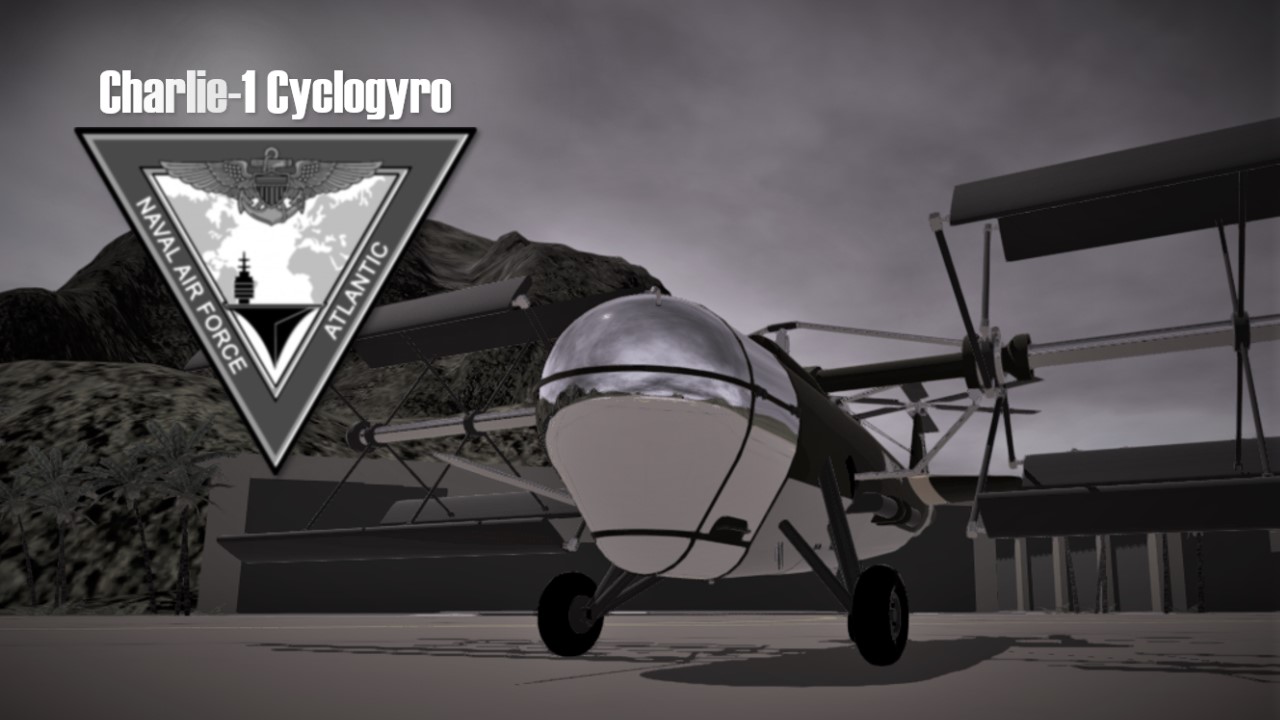
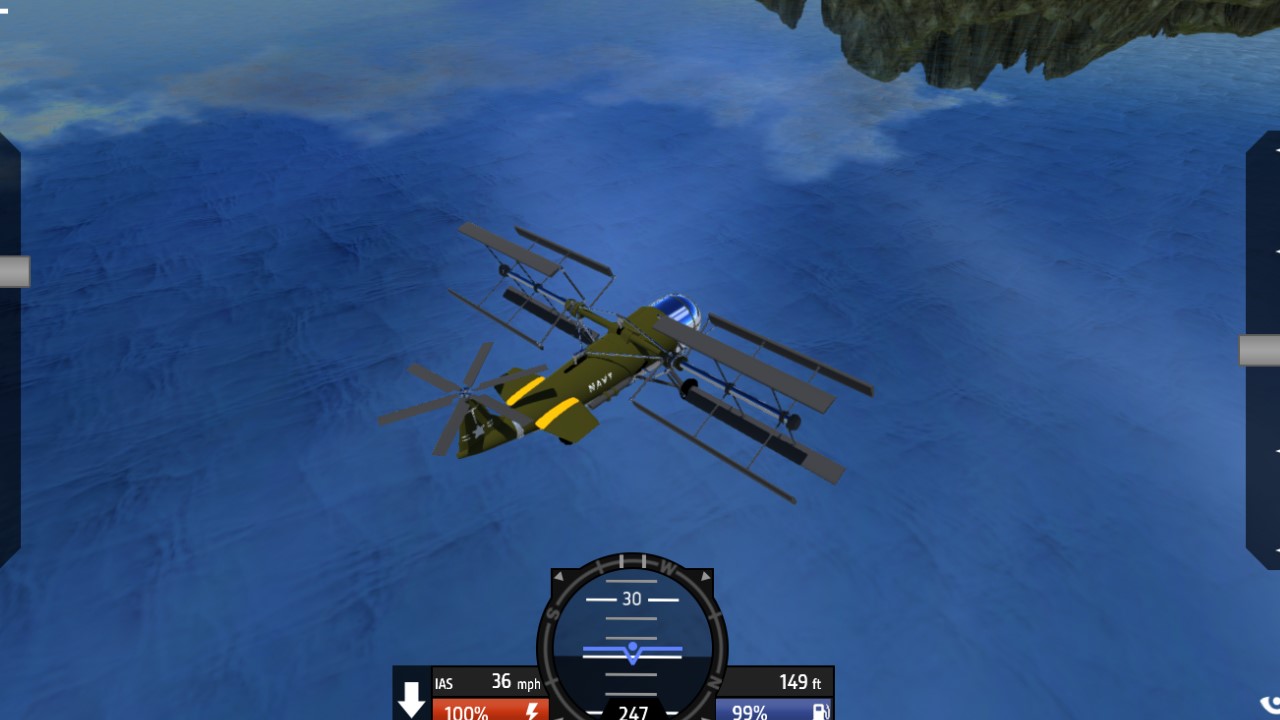
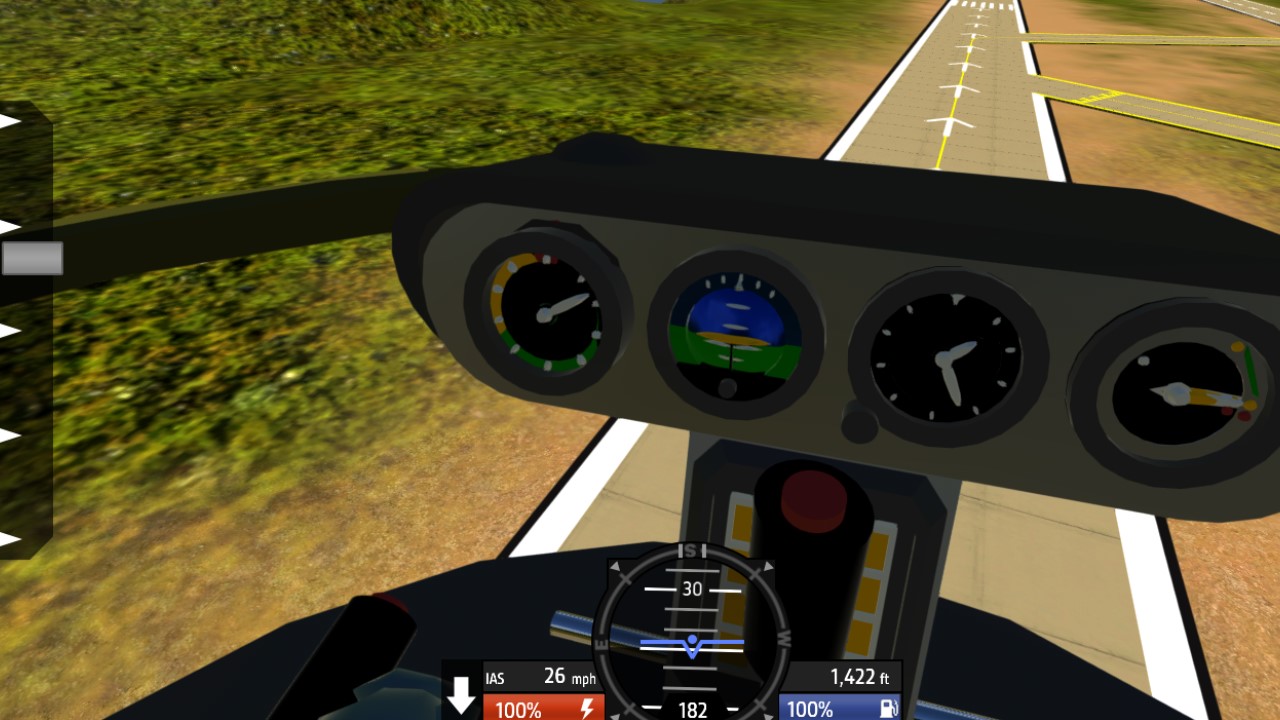
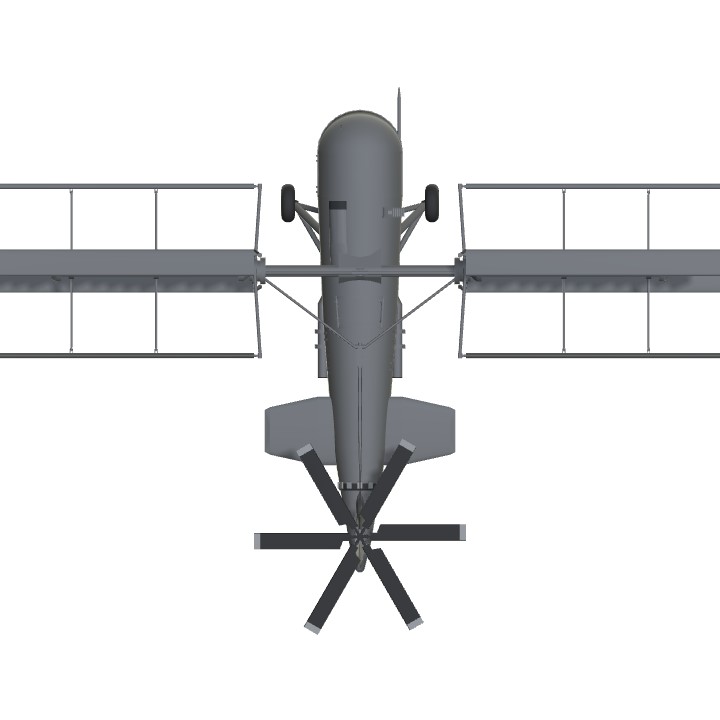
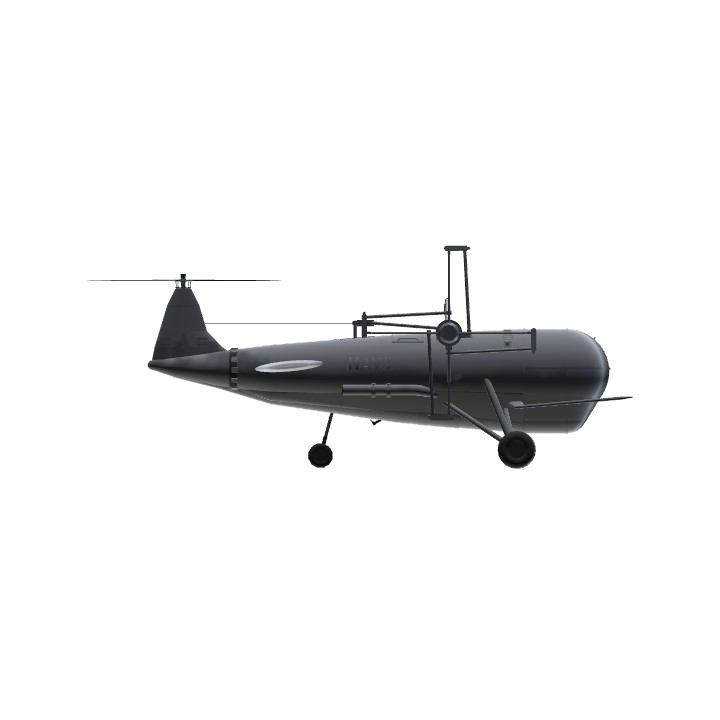
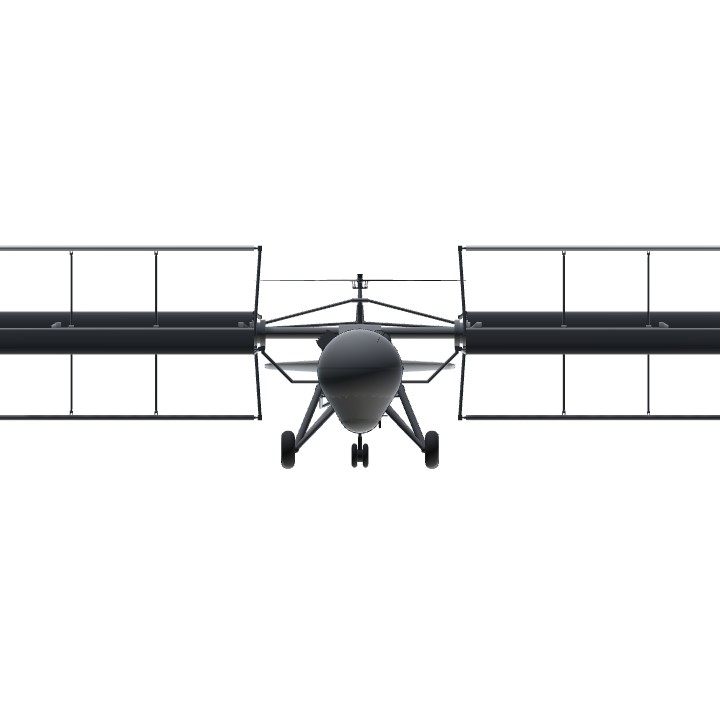
why does it keep blowing up
It’s a fun idea lol, I think some others beat me too, thanks for the spotlight! @FlyingThings
welp, ya beat me to it
@Mustang51 Thanks! nice to hear!
One of the coolest builds I’ve come across recently. Nice one!
🤠@Lulucia
Dude! This is awesome!!!!!!
Just looks like it lol @Blyatsickle
so it's like the kfc magnus plane that peter sripol made?
@Thorne np
Thanks! 🙏 @MAHADI
cool!
Yeah!! I thought I was the only one! @AerialFighterSnakes
The Sikorsky H-5 is one sexy helicopter.
Thanks! @TophatAirkraft
It’s good@Thorne
I’m glad you like it! it took some time to make work well enough @Superplanes22
Dude I love this, its really fun to use
Thanks! I missed your comment earlier @TophatAirkraft
Thanks lol @WSindustries
Congrats on 5000 points @Thorne
The main lift component on a cyclogyro comes from the blades, that’s why that version I linked works on SimplePlanes, here’s how a cyclotron works if this page can explain it better @OmegaDestroyer
@Thorne Usually uses a cylinder. Magnus effect can work on any symmetrical object with a backspin. Using a cylinder is more observable and noticable
Almost, a Magnus effect plane uses a rotating cylinder that requires a relative airflow to work, this works like a helicopter by using a swashplate to change the angle of attack of each blade at different points of the cycle to affect lift and allowing it to take off vertically; at the bottom of the description I included a version that actually applies the concept without using any vtol tricks if it sort of explains it better lol @OmegaDestroyer
So essentially this uses the magnus effect to not only create lift, but to also propel it forward. Sadly, magnus effect doesn't actually work in SimplePlanes because lift is regarded by actual wing area and placement rather than air particle movement. Fantastic job, though!